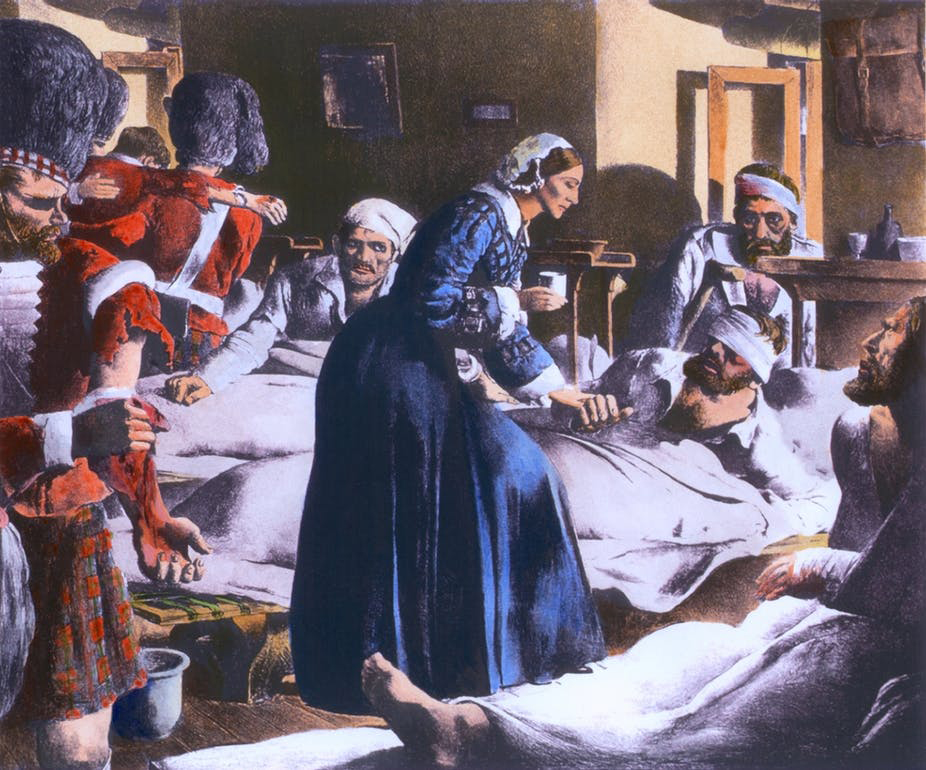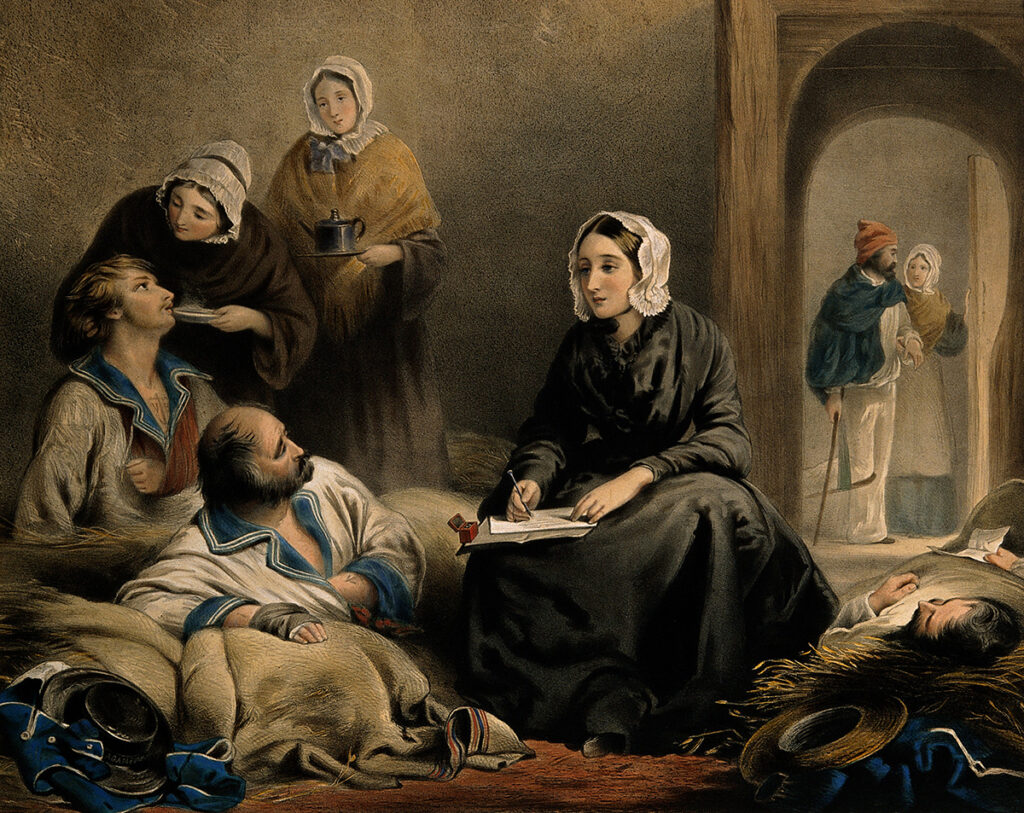WelCom June 2020:
Florence Nightingale is a role model for all people seeking to minister to their communities during the Covid-19 pandemic, say the New Zealand Faith Community Nurses Association (NZFCNA).

Image: Creative Commons
2020 has been designated by the World Health Organisation as the International Year of the Nurse and Midwife in honour of the 200th birth anniversary of Florence Nightingale.
As noted in a special edition of NZFCNA newsletter in May for International Nurses Day, the teaching and example of Florence Nightingale continues to be particularly relevant, whether the challenge is Covid-19, or diseases on the battlefield or poverty-stricken housing.
‘I believe,’ writes NZFCNA chairperson Faye Davenport, ‘that Florence Nightingale has something for all of us, not only nurses, in the way she advocated for others and sought to minimise suffering amid the most challenging situations.
‘Florence was a servant in Christ. She lived out her faith in action every day.’
Florence Nightingale, was born in Florence, Italy, on 12 May 1820 into a wealthy British family at the Villa Colombaia in Florence, Tuscany, and was named after the city she was born in. A British nurse, statistician, and social reformer, she was far ahead of her time and became the foundational philosopher of modern nursing. She died in 1910.
‘She was a privileged child receiving an education unusual for women at that time,’ writes Faye Davenport. ‘From a very young age, Florence Nightingale was active in philanthropy, ministering to the ill and poor people in the village neighbouring her family’s estate. By the time she was 16 years old, it was clear to her that nursing was her calling. She believed it to be her divine purpose.
‘When she approached her parents and told them about her ambitions to become a nurse, they were not pleased. In fact, her parents forbade her to pursue nursing. During the Victorian Era, a young lady of Nightingale’s social stature was expected to marry a man of means – not take up a job that was viewed as lowly, menial labour by the upper social classes. She was fiercely determined and not to be deterred.

Image: Wikimedia Commons
‘Nightingale was put in charge of nursing British and allied soldiers in Turkey during the Crimean War. She spent many hours in the wards, and her night rounds giving personal care to the wounded established her image as the ‘Lady with the Lamp’. For years Florence acted as behind-the-scenes British secretary of war, managing to considerably better conditions for men in the armed services by setting up a system of health administration that was without precedent.
‘Suffering, wherever it existed, challenged her. She even set up a system for extending nursing care to the poor and the criminal underworld in the slums of English cities.
‘Florence Nightingale’s efforts to formalise nursing education led her to establish the first scientifically-based nursing school – the Nightingale School of Nursing, at St Thomas’ Hospital in London. which was opened 1860. She also was instrumental in setting up training for midwives and nurses in workhouse infirmaries.
‘She was the first woman awarded the Order of Merit (1907).
‘While at Scutari, Florence Nightingale had contracted “Crimean fever” and would never fully recover. By the time she was 38 years old, she was homebound and bedridden, and would be so for the remainder of her life. Fiercely determined, and dedicated as ever to improving health care and alleviating patients’ suffering, Nightingale continued her work from her bed.’
International Nurses Day, observed annually on May 12, commemorates Florence Nightingale’s birth and celebrates the important role of nurses in health care. She has been called the most extraordinary nurse in history.
NZFCA Newsletter, 3 May 2020.